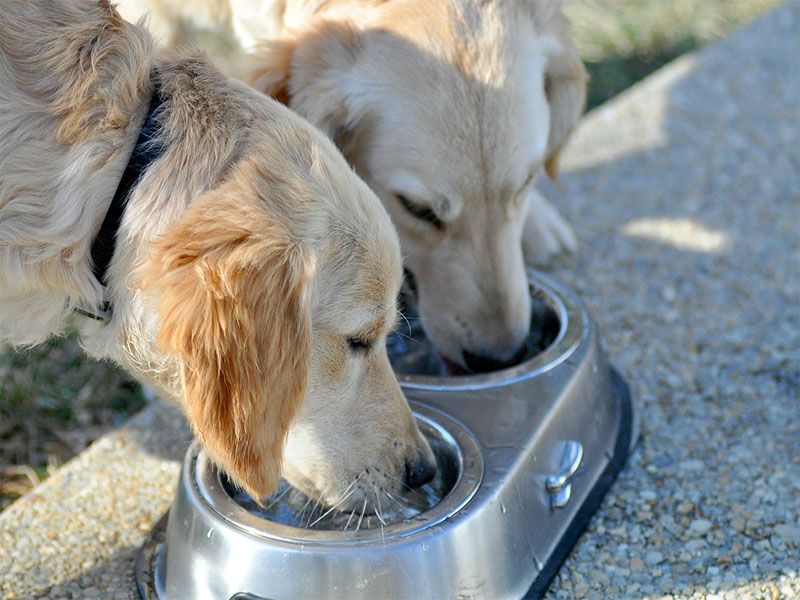
It can be tough to deny those pleading eyes, but dog owners need to be careful about giving human food to their pets, a pet health expert warns.
Certain foods can be dangerous — or even deadly — for dogs.
You may be tempted to toss your dog a bit of raw meat, but it can contain harmful bacteria such as E. coli and salmonella, said Carmela Stamper, a veterinarian at the U.S. Food and Drug Administration.
If you’ve handled raw meat, wash your hands before giving your dog a treat.
Grapes, raisins and currants can cause kidney failure in some dogs. But they can eat bananas and apples, just not apple cores or seeds.
A problem with many “people” foods is that they contain onions, garlic, and chives, or onion and garlic powder. These foods can all harm your dog.
Along with upsetting your dog’s stomach, fried and fatty foods can also cause a serious disease called pancreatitis.
While the odd potato chip or pretzel won’t cause any harm, large amounts of salty snacks can cause problems, Stamper said.
Don’t give moldy foods to dogs, and be sure you dog can’t get at them in the garbage or compost heap.
Many dog owners know chocolate is dangerous for their pets, but may not be aware that macadamia nuts and the sugar substitute xylitol also pose serious threats. Xylitol is found in sugarless gum, candies, oral products, and some peanut butters and other nut butters.
“If you feed your dog pills coated in peanut butter, or put peanut butter in their hollow chew toys, make sure to check the list of ingredients first to make sure it doesn’t contain xylitol,” Stamper said in an FDA news release.
And, what if your furry friends are of the feline variety? Well, cats are more discerning about what they eat, so you don’t need to worry as much about them. Cats tend to avoid foods that may harm them, the FDA noted.
However, as with dogs, foods with onions, onion powder, garlic or garlic powder aren’t good for kitties, so be sure not to feed them any foods containing these ingredients.
More information
The American Veterinary Medical Association has more on pet care.
Source: HealthDay

Leave a Reply